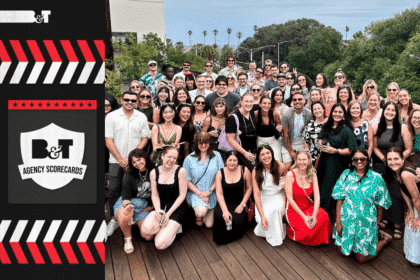In this guest post, managing director of social and content agency We The People, Jacob Arnott (pictured below), says if you reckon Facebook is all-pervading now, you ain’t seen nothin’ yet!
Earlier this year, a Facebook executive told a panel at the eTail tech conference in Palm Springs that Facebook’s new focus was “to help retailers through the purchase and post-purchase phase.” Typically, when Facebook has ever discussed “helping” an industry, they really mean they’re gearing up to ‘disrupt’ that industry.
Translation: Facebook is looking to disrupt retailers through the purchase and post-purchase phase.
Facebook has long mapped out publicly their aspirations to drive a ‘zero friction’ purchase future but has yet to cash-in on the ability to complete product purchases on-platform. Facebook ran a pilot of their ‘Checkout for Instagram’ feature last year which gives users the ability to purchase products inside the Instagram app without having to visits a brand’s website and input their credit card or postage information.
And by all reports, it was a roaring success. Adidas reported a 40% increase in online sales in the US during the first three months of 2019, largely attributed to their involvement in the Checkout beta trial.
You might scoff at those headline results, but the behavioural insights driving this innovation suggest that Facebook’s momentum towards becoming a commerce platform, has the potential to cause significant disruption.
Uber offered us a way to order a ride with the touch of a button and without the need to talk to another human. Netflix removed the need to visit your local Blockbuster on a Friday night. Google sorts through billions of webpages to show you the information you’re most likely looking for.
Our obsession with convenience made Tinder the place you’re most likely to find your partner and our society effectively cashless with tap-and-go technology. A frictionless, convenience-driven experience has time after time won in the market.
It shouldn’t then be such a surprise that when we mix this love for convenience with one of the biggest pools of your personal data (your Facebook and Instagram accounts), that we’re running headfirst into another consumption disrupting event.
But this wave of disruption won’t land with a big bang. It will bubble up as a trickling stream that will eventually become a raging river.
Uber Eats and Deliveroo have had a similar impact on the hospitality industry, slowly but surely dragging revenue streams away from in-store dining in favour of a lazy night-in. This hasn’t shuttered fooderies; however, it has had a profound impact in how they operate, including the opening of delivery-only ‘dark’ kitchens.
When Facebook’s pivot to becoming a commerce platform takes full flight, retailers won’t close, history says they’ll just be forced to pivot.
In Facebook’s social commerce utopia, we’ll see a previously unseen trifecta of behavioural forces. Single-touch convenience will be mixed with an algorithm that knows you incredibly well, in a forum observed (and judged) by hundreds of your closest online friends.
Unlike Amazon and the already disruptive impact it’s having on retailers around the globe, Facebook already has a captive audience that spends hours a day liking, sharing and messaging. Amazon can help you find what you’re looking for, but Facebook will be able to help you find what you’re not looking for – and help you buy it straight away.
So, should we take this incoming disruption as an exciting new reality or scary horizon?
In Facebook’s new commerce reality; the performance of your Instagram posts will be measured in dollars, not likes. Influencers will become your brand’s most important in-store assistants. Brands and retailers that are able to quickly adapt and integrate social commerce will likely do well. Building a digitally led brand on social media will be the key to disruption-proofing a brand.
All the pieces of this puzzle suggest that if they get this formula right, Facebook will become a fully-fledged commerce platform to be reckoned with.
Fortunately, or unfortunately for retailers, this next wave of disruption might be closer to hitting the shore than we think. Facebook has ramped up its rollout of new products and features in-light of the coronavirus crisis driving a surge in attention to the platform.
Facebook Engineers began testing the integration of Facebook Pay (their version of PayPal) on Instagram late last month, suggesting they may be gearing up to go wide with ‘Checkout’ sooner rather than later.










